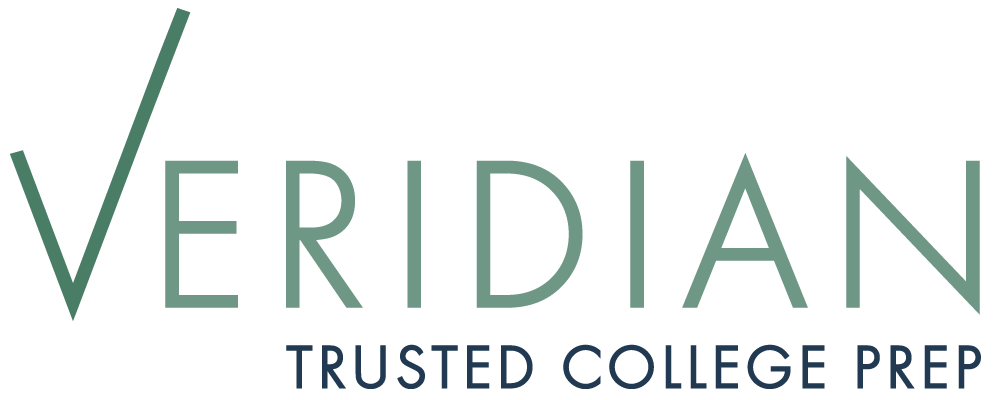Real College Supplements That Work: Yale
by Valerie Erde
When it comes to applying to selective colleges, one of the most arduous parts of the process is writing the supplemental essays. In addition to the standard 650-word “main” essay, most selective colleges require several additional essays (aka supplements) to round out the application. Depending on how many schools you apply to, you could be on the hook for thousands of additional words of writing, all of which are supposed to help you stand out from the crowd in mistake-free, impressive prose.
Indeed, over the years that I’ve been helping students with their college applications, many have found the supplement writing more challenging than the main essay. Try being sincere and down-to-earth, but also intellectually engaged and impressive, not to mention weaving in specific detail, in 100-250 words! I often tell parents and students that these supplements are so challenging because they almost require you to have the craft of an advertising copywriter.
That’s a lot of pressure!
And when it comes to the topic of these essays, many students put even more pressure on themselves. They assume that they need to already have a published science research paper or to have starred in an award-winning film to have something interesting to write about.
That’s just not true. In fact, some of the best essays and supplements are about normal, everyday experiences. When you write about it well, any topic can be engaging.
To see what I mean, let’s take a look at a series of supplemental essays by G.B. who wrote about a normal summer experience: babysitting for her “community” supplement; and wrote about one of her true intellectual interests: love of languages - French in particular - for her intellectual engagement/academic interests supplements for a successful application to Yale. She painted a clear picture of her passions and personality in just a few hundred well-chosen words.
Supplement #1: The Community Essay
The Prompt
Reflect on a community to which you feel connected. Why is it meaningful to you? You may define community however you like. (250 words)
The Essay
I opened the wooden gate and was immediately sprayed in the face with a sprinkler jet of water, courtesy of little Caroline Gilpatrick. Great start, I thought. Little did I know on my first day of babysitting that the next three summers would be just like that spray of water: overwhelming, but also rewarding in its spontaneity.
Every day, for six weeks, I was the Gilpatrick children’s caregiver, making mac and cheese, icing trampoline-incurred injuries, and spending hours reading and re-reading The Penderwicks. But after weeks of not only making lunches and washing grass stained clothes, but also organizing lively neighborhood kickball, team scavenger hunts, and lemonade sales, we became more than just me and the two Gilpatricks; we and the neighborhood kids became our own Cedar Street community.
I found myself really looking forward to those carefree hours with all our friends on the block: the chance to be a kid again and to be surrounded by people who looked up to me. But more than that, I loved the feeling of togetherness — the shared games and meals and the numerous ice-cream truck runs! While I didn’t solve world peace, I did teach a block full of kids how to count to ten in French, do cartwheels, and complete jigsaw puzzles. I believe I made their summers — and mine — more fun and fulfilling. I hope that in the years to come, when the Gilpatrick children look back, they’ll remember everything we did together. I know I will.
Why It Works
Instead of trying to get lofty in her answer to Yale’s “community” prompt (a very common topic of supplemental essays across colleges), G.B. zeroed in on something very personal: her summer babysitting experiences. This allowed her to show off her leadership skills in a very specific way, and she also had the opportunity to mention one of her great academic interests: French.
G.B. is upfront about the fact that her experience isn’t anything grand like solving world peace, but she is careful to explain what it meant to her and to the children she worked with. She also developed the essay with wonderfully specific details (ice cream, trampolines, water guns, etc.) and gave some insight into what she was thinking about the experience, both as it was happening and after she had been able to reflect on its larger meaning.
Supplement #2: Intellectual Engagement
The Prompt
Current version of prompt this student answered: Yale’s extensive course offerings and vibrant conversations beyond the classroom encourage students to follow their developing intellectual interests wherever they lead. Tell us about your engagement with a topic or idea that excites you. Why are you drawn to it? {When G.B. applied, the prompt asked “What do you love to do?” But this is essentially the same question.]
The Essay
I love to speak French, to feel the beautiful, thick, words flowing off my tongue, to speak and have no one else in my family (with the possible exception of my French dog Henry) understand me, to speak and have everyone in Paris understand me.
To me, French is not just a pretty language but an imaginative, smart language. The nuances French has developed over time, like the use of mon in front of words that start with a vowel, even words that would normally take ma, for a better word flow, tell me that French is a language that is not afraid to break the rules when needed. It is a language that boldly uses the same word for a bolt of lightning as for a cream-filled pastry (éclair), the language that uses eight words to say “upstate” (dans le nord de l’état de New York), the language that dares to have the phrase pomme de terre, saying “apple of the earth” instead of “potato.”
French has so many idiosyncrasies and peculiarities that, to me, it is a puzzle that never ends, a code never fully cracked, and that means that every time I say pamplemousse, I am transfixed.
Why It Works
G.B. squeezes a lot of knowledge into this short essay, which gives her a chance to show off her deep connection to (and impressive understanding of) the French language. More importantly, she conveys her passion by explaining what it is that she likes about all those French words. This gives insight into the way she thinks about language and learning, which is both personal and unique. Finally, she uses excellent English vocabulary in this essay as well, which shows careful attention to detail and strong writing skills.
Supplemental Essay #3: When You Have to Indicate Major/Minor
The Prompt
Students at Yale have time to explore their academic interests before committing to one or more major fields of study. Many students either modify their original academic direction or change their minds entirely. As of this moment, what academic areas seem to fit your interests or goals most comfortably? Please indicate up to three from the list provided. Why do these areas appeal to you? (125 words or fewer)
The Essay
I have always been fascinated with the study of language — the thrill of cracking a hidden code few others know: French, Java, musical notation, even obscure Mock Trial legal jargon. My passion for languages has influenced my academics (classes such as AP French and AP Computer Science), my extracurriculars (guitar, teaching after-school French), and my hobbies (photography, reading, doing jigsaw puzzles). The prospect of attending college without spending time deciphering more and more words, roots, and symbols is an unlikable one, and so at [college], I would like to pursue French, computer science, and linguistics.
Why It Works
In this final piece, G.B. ties together the various threads that she developed in her other essays: her love of languages and the hobbies she pursued during both the summer and the school year. She uses this opportunity to explain exactly how all the pieces of her high school self come together to make her who she is, and in doing so, provides the admissions officers a look at what she will bring to the campus community with her unique combination of interests.
The Bottom Line
You don't have to pretend to be someone you’re not to write impressive supplemental essays. What you do have to do is write with interesting detail about the experiences that make you unique. These can be as simple as a passion for jigsaw puzzles, French words, and finding fun ways to pass the time with the neighborhood kids. If that’s who you are, be proud of it — and write about it with confidence and care.
If you need help crafting your supplemental essays, reach out! VeridianPrep is here to help with tutoring that will help you solidify your writing skills and develop clear, concise, and compelling essays for your college applications. Get in touch to get started today!

